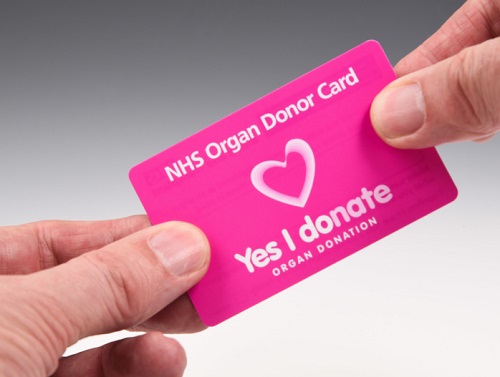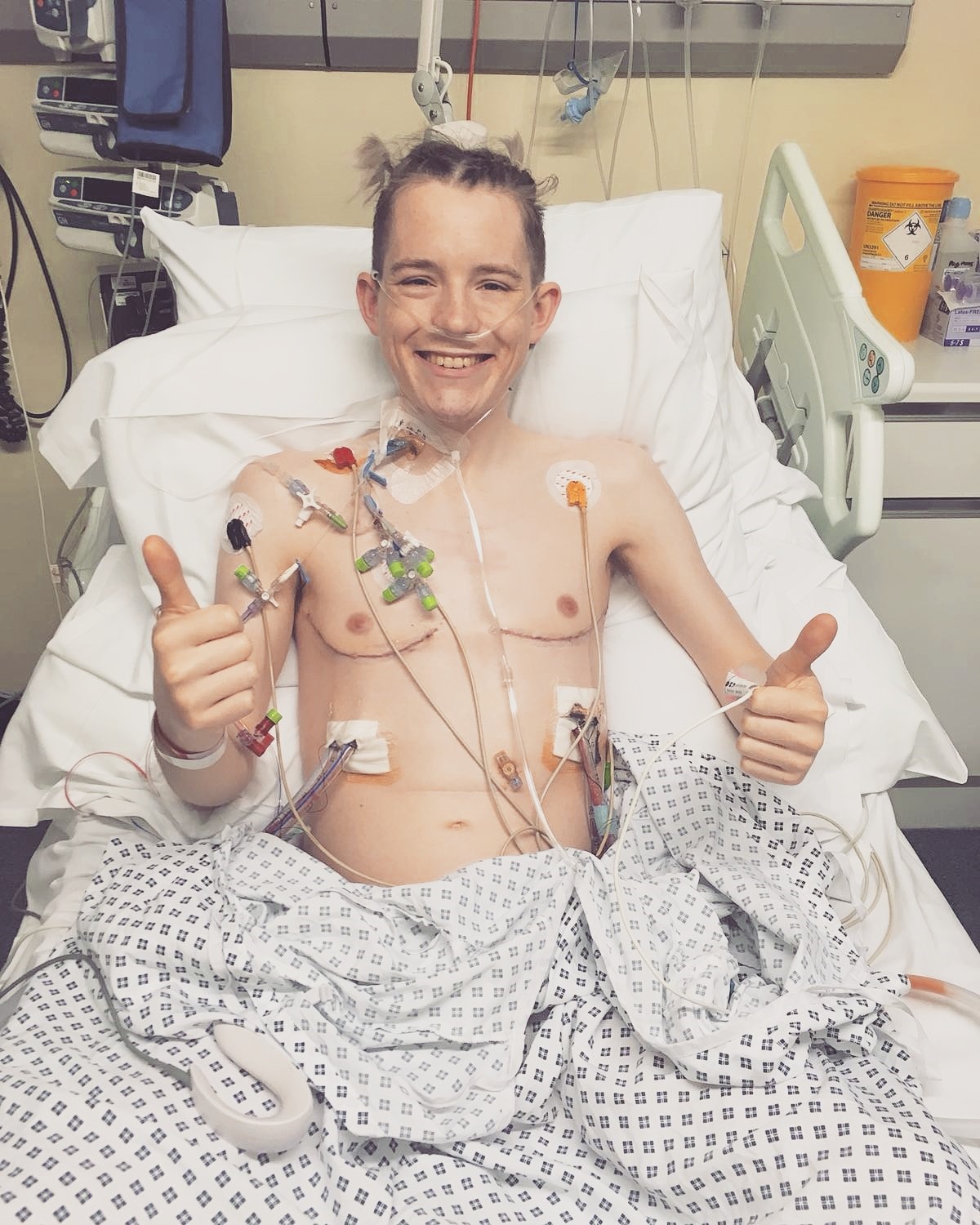Current statistics
Get daily, weekly, monthly organ donation statistics and more...
New figures published today by NHS Blood and Transplant in the annual Organ Donation and Transplantation Activity Report show that last year, 1,600 people in the UK donated their organs after they died; saving or improving the lives of 3,941 transplant recipients and giving hope to those still waiting.
 This achievement is particularly remarkable given that figures now show that just 5,815 people died in circumstances where organ donation is possible; a 4% drop and 225 fewer eligible donors than in 2017/18. With fewer eligible donors, it is more important than ever to ensure that everyone who is able and wants to donate their organs after they have died is given the opportunity.
This achievement is particularly remarkable given that figures now show that just 5,815 people died in circumstances where organ donation is possible; a 4% drop and 225 fewer eligible donors than in 2017/18. With fewer eligible donors, it is more important than ever to ensure that everyone who is able and wants to donate their organs after they have died is given the opportunity.
The increase in the number of organ donors was made possible thanks to: more families agreeing to support donation1, fewer families refusing to support their relative’s decision to donate2 and an increased referral rate of potential donors by medical staff to organ donation teams3.
Despite the rise in donations, the overall number of transplants was slightly down, with 87 fewer organ transplants taking place than the previous year (3,951 in 2018/19 compared to 4,038 in 2017/18). The reasons for this decrease are complex and still being fully explored by the organ donation and transplantation community, however changing donor characteristics may play a part. The data shows for every 10 donors, there was one fewer transplantable (and in turn, transplanted) organ than last year.
Sadly, in 2018/19, 400 people died while waiting for their call and a further 777 were removed due to deteriorating health. Many of these would have died shortly afterwards. Currently over 6,000 people are still waiting for a transplant.
A spokesperson for the British Transplantation Society, said:
“Transplantation is complex and we continue to look at every opportunity to maximise the use of donated organs to benefit our patients. The success of transplantation means that many patients are now living longer but may have more complex health issues or may require more than one transplant in their lifetime. Careful consideration is always given to finding a suitable organ to give every recipient the best chance of a successful transplant.
“As a community we are committed to increasing transplantation opportunities for every person in need of a transplant and we are continually developing and testing new technologies and techniques to further improve the organ donation and transplantation pathway, as well as continuing to highlight the need for more organ donors. This ongoing effort will allow us to make the best use of each precious organ and lead to the highest benefit for our patients.”
In 2020, the law around organ donation will be changing in both England and Scotland. Both countries will be introducing an opt out system for organ donation, just as Wales did in December 2015 and Jersey from 1st July 2019.
Wales now has the highest consent rate of all the UK nations, now 77%, up from 58% in 2015. It is hoped that once the law change comes into force in both England and Scotland, and as awareness of organ donation is heightened in the public consciousness, we will see similar increases across both these countries.
Anthony Clarkson, Director of Organ Donation and Transplantation at NHS Blood and Transplant, comments:
“No lifesaving transplant would be possible without the generosity of every donor and their families, who give their support and say ‘yes’ to organ donation.
“It is testament to the courage of these donors and their families, as well as the dedication of all the clinical staff involved, that we have been able to save and transform as many lives as we have this year.
“The reduction in the number of people dying in circumstances where they are able to donate, means that we need to continue to explore ways to improve the donation and transplant process. We are utilising new techniques and technologies to ensure that donated organs are in the very best possible condition for transplant and are working to increase awareness and understanding of organ donation and the law change across society with the aim that no opportunity for donation is missed.
“Donors and their families give the most precious gift of life. We owe it to them, as well as those waiting for a transplant, to ensure their precious gift is honoured and that we make the most of every opportunity to save and improve lives.”
 One of the 3,951 people who benefitted from a life-transforming transplant in 2018/19 was 24 year old, Charles Michael Duke. Charles, a singer, songwriter and performer, born with cystic fibrosis, became a prominent campaigner for the importance of organ donation and the need for a law change during his three and a half year wait.
One of the 3,951 people who benefitted from a life-transforming transplant in 2018/19 was 24 year old, Charles Michael Duke. Charles, a singer, songwriter and performer, born with cystic fibrosis, became a prominent campaigner for the importance of organ donation and the need for a law change during his three and a half year wait.
Incredibly, just a few months after receiving his transplant, Charles was back on stage and is shortly due to star as Judas in Jesus Christ Superstar– known to be one of the most demanding male vocal roles in musical theatre - at the Pavilion Theatre in Bournemouth.
Charles says:
“By the time I received my transplant, I had been unable to sing and perform on stage for four years. Gradually even basic everyday tasks became a struggle. My whole life was effectively put on hold. It is impossible to put into words, the feelings that I have for my donor. They have given me a second chance and given me back the opportunity to life my life to the fullest. This is something I have promised to do in their memory. I hope that by showing others what can be achieved, I can inspire others still waiting to hang on in there and those still unsure about organ donation to sign up and tell their families that they want to donate! I am excited about the law change and hope that this will help even more people to get the call they are so desperately waiting for.”
It’s your choice whether or not you want to donate your organs. Please register your decision on the NHS Organ Donor Register and ensure you tell your family.

It takes just two minutes to register online.
You still have a choice about whether or not you wish to become a donor.

Get daily, weekly, monthly organ donation statistics and more...